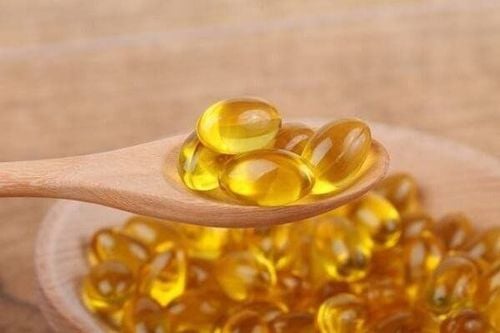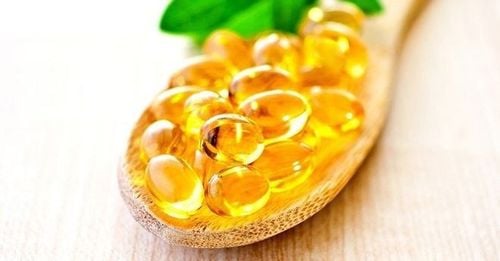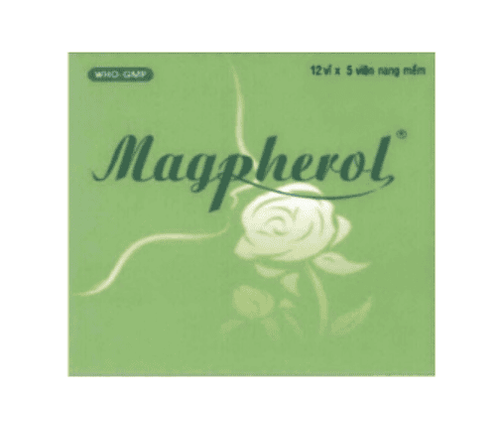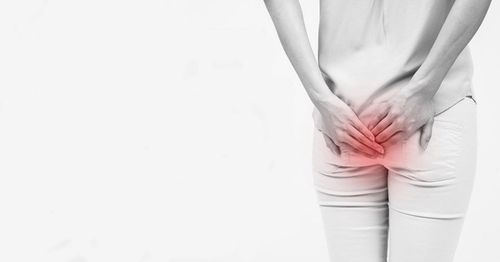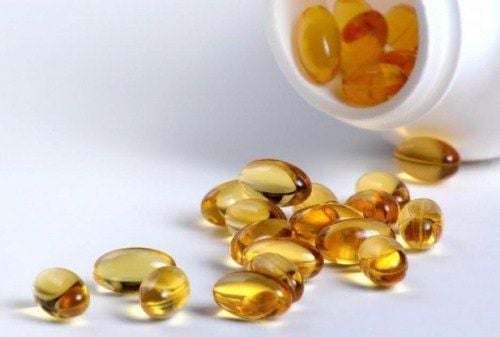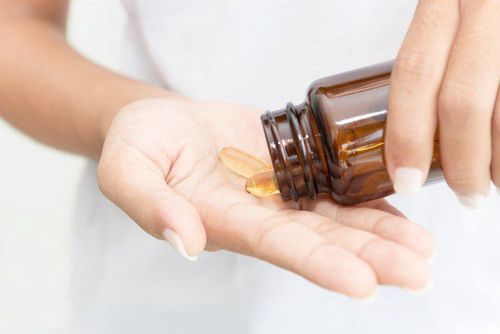This is an automatically translated article.
The article was professionally consulted with Doctor Vo Ha Bang Suong - General Internal Medicine - Department of Examination & Internal Medicine - Vinmec Phu Quoc International General HospitalVitamin E is considered key to a healthy immune system. Besides, supplementing with vitamin E helps improve skin and eyesight. In recent years, vitamin E supplements have become increasingly popular as an antioxidant. Several studies have proven that vitamin E has the effect of preventing cardiovascular disease and cancer.
1. Why should you take vitamin E?
Until now, the benefits of Vitamin E to human health are undeniable. However, vitamin E deficiency is rare. Vitamin E deficiency only occurs in people with digestive problems or cystic fibrosis. Besides, people with low-fat diets also make Vitamin E low. More and more people are now taking vitamin E supplements in the hope that its antioxidant properties will help prevent or treat disease.Vitamin E may have a number of health benefits, such as:
Alzheimer's disease: some studies show that getting vitamin E through the diet reduces the risk of Alzheimer's disease. However, this issue needs further study, as vitamin E supplementation does not appear to prevent the development of Alzheimer's disease. For people who already have Alzheimer's disease, taking vitamin E along with certain anti-Alzheimer's medications might slow memory decline. Anemia: Some research shows that taking vitamin E improves response to the drug erythropoietin, which affects red blood cell production, in adults and children on hemodialysis. Blood clotting disorders: a decrease in the level of a protein in the blood called hemoglobin (beta-thalassemia). Taking vitamin E is effective for children with blood disorders, also known as beta-thalassemia and vitamin E deficiency. Nerve damage caused by cancer drugs: take vitamin E before and after taking cancer drugs. cisplatin may reduce the risk of nerve damage. Menstrual cramps: 2 days before menstruation and 3 days after menstruation, taking vitamin E helps relieve pain and reduce blood loss. Taking vitamin E with fish oil may provide more pain relief than taking vitamin E alone. Glomerular fibrosis: There is some evidence that taking vitamin E can improve kidney function in children with glomerulosclerosis. G6PD deficiency: Some studies show that taking vitamin E or taking it in combination with selenium may be effective for people with the genetic disorder G6PD deficiency. Granuloma annulare: vitamin E helps clear skin sores caused by granuloma annulare. Huntington's disease: Natural vitamin E may improve symptoms in people with early-stage Huntington's disease. However, it is not effective for advanced Huntington's disease. Intracerebral hemorrhage: Oral vitamin E helps treat bleeding in the skull in premature babies. Improves infertility in men: Taking vitamin E improves fertility in men, but taking high doses of vitamin E in combination with vitamin C will not bring the effect. Nonalcoholic steatohepatitis: Daily intake of vitamin E improves liver inflammation in adults and children. Parkinson's disease: People who get plenty of vitamin E through their diet may have a reduced risk of Parkinson's disease. Recovery from laser eye surgery: Taking high doses of vitamin A along with vitamin E (alpha-tocopheryl nicotinate) daily improves vision in people undergoing laser eye surgery. Premenstrual syndrome (PMS): Taking vitamin E has been shown to reduce anxiety and depression in some women with PMS. Vitamin E is also considered very good for women in menopause. This is the period when women will experience some conditions such as hot flashes and menstrual disorders,... Proper vitamin E supplementation will help women improve this condition and feel much more comfortable. . Physical improvement in the elderly: Research shows that increasing dietary vitamin E intake is associated with improved fitness and muscle strength in the elderly. Retinopathy of prematurity: Oral vitamin E supplementation helps prevent retinopathy in premature infants. Rheumatoid Arthritis (RA): Vitamin E combined with standard treatments is better than standard treatment alone for pain relief in people with RA. However, this combination did not reduce swelling. Sunburn: Using high doses of vitamin E (RRR-alpha-tocopherol) in combination with vitamin C to prevent skin inflammation after UV exposure. However, vitamin E alone did not provide the same benefit. Applying vitamin E to the skin, along with vitamin C and melatonin, helps protect the skin against UV exposure. Movement disorders: Taking vitamin E improves symptoms associated with movement disorders. However, some other research shows that it does not improve symptoms, but may prevent symptoms from becoming more severe. Uveitis: Taking vitamin E in combination with vitamin C improves vision, but does not reduce swelling, in people with uveitis.

Vitamin E làm giảm đau bụng trong thời kỳ kinh nguyệt
2. Is it safe to take Vitamin E daily?
Vitamin E is relatively safe for the body, but high doses of vitamin E can cause some side effects such as headache, feeling tired, nausea or vomiting, and some cases of mild rash. . In addition, patients may also experience more serious conditions such as abdominal pain, weakness, digestive disorders, easy bruising, bleeding, impaired vision,...When you Stop using vitamin E, the above symptoms will disappear. In case, the symptoms do not improve when you stop taking them, you should see a doctor to help find out the cause and provide effective treatment.
Do not think that the more you add it, the more it helps to prevent aging, making your skin and hair more beautiful quickly. An overdose of vitamin E can be counterproductive and accelerate the aging process.
Note, vitamin E can also increase blood clotting time and antagonize vitamin K, interact with aspirin to prevent platelet aggregation and if used with estrogen for a long time can cause blood clots. . Therefore, vitamin E should not be abused.
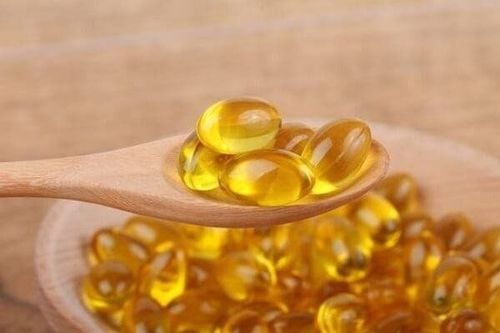
Nạp vitamin E vừa đủ để an toàn cho sức khỏe
3. How much vitamin E should be taken per day?
The need for vitamin E to stay active is at least 22 IU. However, to prevent skin aging and diseases, a dose of 100-400 IU/day can promote a positive antioxidant effect. Daily nutrition can hardly meet this dose, so it needs to be supplemented from supplements.The Recommended Dietary Allowance (RDA) includes how much vitamin E you get from both foods and any supplements you take.
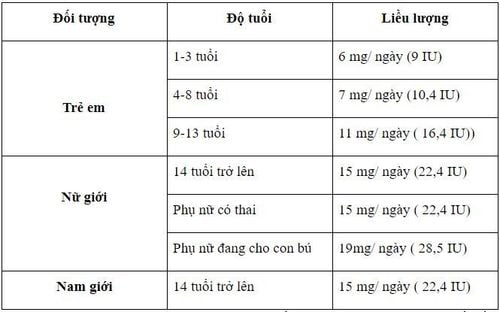
Đơn vị tính: Vitamin E (alpha-tocopherol) tính bằng miligam (mg) và đơn vị quốc tế (IU)
| Đối tượng | Mức dung nạp trên khi bổ sung vitamin E |
|---|---|
| 1-3 tuổi | 200 mg/ ngày (300 IU) |
| 4-8 tuổi | 300 mg/ ngày (450 IU) |
| 9-13 tuổi | 600 mg/ ngày (900 IU) |
| 14-18 tuổi | 800 mg/ngày (1.200 IU) |
| 19 tuổi trở lên | 1.000 mg/ ngày (1.500 IU) |
Most people will get the vitamin E they need from foods, such as:
Vegetable oils Green leafy vegetables, like spinach Fortified cereals and other foods Eggs Nuts
4. How to take vitamin E safely and effectively
For vitamin E to be best absorbed by the body, you need to have enough fat and fat, because this is a fat-soluble vitamin. For example, you eat bean sprouts to supplement vitamin E, but if you mix the sprouts with a little cooking oil or stir-fry them, the amount of vitamin E absorbed by the body will be more than when you eat them raw.Some other important notes on how to take vitamin E:
Every day, the vitamin E requirement of an adult is about 15mg. Do not abuse vitamin E: Abuse of this vitamin for beauty purposes can seriously affect your health, especially those who use high doses of vitamin E. In some cases, high doses of vitamin E intravenously can be fatal. Do not use vitamin E for too long. Women over 30 can beautify by supplementing vitamin E for about 1, 2 months. Then stop taking the drug for a while and then continue taking it. Healthy people should not take synthetic vitamin E supplements, but just need to add foods that contain a lot of vitamin E. Nutrition experts say that vegetable oils will be an abundant source of vitamin E. for body. Specifically: wheat germ, soybean, sunflower oil, rice germ, bean sprouts, some green vegetables, meat, fish, eggs, milk, and many kinds of fruit,... Some subjects had skin diseases. dry, broken hair or some patients with diseases such as diabetes, high blood pressure, or blood lipids, ... need a doctor's prescription to supplement vitamin E. Need to read the school instructions carefully. When using, follow the doctor's instructions on dosage and duration of use. Be especially careful with liquid vitamin E. People with oily skin using topical Vitamin E can cause breakouts. This type is only useful for people with dry or aging skin. It can be said that vitamin E has many uses for health and beauty. However, we need to supplement vitamin E in a reasonable and proper way, not overdo it to avoid affecting health.
Please dial HOTLINE for more information or register for an appointment HERE. Download MyVinmec app to make appointments faster and to manage your bookings easily.
Article references sources: webmd.com, sciencedaily.com, webmd.com, health.harvard.edu



